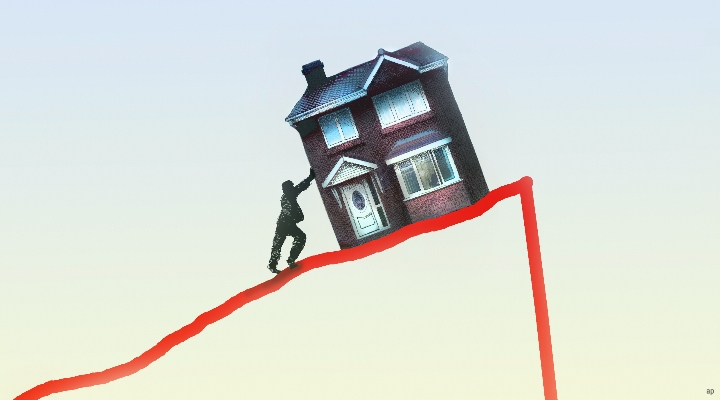Robert van den Oever: Welcome to Morningstar. After the problems at the banks, investors are now looking at commercial real estate as the potential next shoe to drop. And about that, here with me today is Morningstar's Manager Research Analyst, Thomas De Fauw, who will give us some insights in the real estate markets.
Welcome, Thomas. Can you explain to us what happened here?
Thomas De Fauw: Hi, Robert. Yeah. Well, it looks like investors had several flashbacks to the start of the Global Financial Crisis some 15 years ago. What's happening, I think, is that we're starting to see the consequences of sharp rate hikes seen last year. Feels like the market is looking for weak links within the system.
As you said, banks have dominated headlines first, but commercial real estate has also made the news last month. I've checked, and while the MSCI Europe Index was flat last month, the European listed real estate indexes fell some 12% in March alone. Funds in the European-listed real estate category suffered similar losses. And don't forget that these funds lost over 33% last year already when investors priced in the rate hikes and weaker growth to come. Of course, these losses are still far from the 2007 decline, but the correction is meaningful with the Morningstar's Developed Market Europe Real Estate Index now back at the COVID-19 lows.
Van den Oever: So, big losses indeed, as you say. So, why are investors punishing commercial real estate right now?
De Fauw: Yeah, that's a good question. In a way, much of what has been discussed is not new information. Office and retail have been under pressure ever since COVID-19 changed our working and shopping habits, and the broader public real estate market, as I mentioned, corrected sharply in 2020 already. But since the collapse of Silicon Valley Bank, there has been a focus on the fact that many of these commercial real estate loans are held by regional banks in the U.S. Now, time will tell how big of a problem that really is. A lot of factors are obviously at play here. But in the meantime, it's most likely that banks will be more reluctant to lend. And these stricter lending standards are obviously bad news for real estate companies, especially those that rely heavily on debt trading.
For example, REITs, so real estate investment trusts, which are perhaps less known in Europe, these are funds that own or finance income-producing real estates, such as offices, apartment buildings, but also warehouses and data centers. These are quite interesting, because if you look at the structure that they have, they are actually required to distribute 90% of the interest or rental income they generate to investors in the form of dividends. So, that means they can't really build a buffer for the bad times. So, in this environment, higher financing costs and potentially lower rental income may ultimately affect those dividends, making these vehicles less attractive for investors.
Van den Oever: Okay. And can you give us some outlook on what is to be expected next, and can you also give some ideas that Morningstar has in this space?
De Fauw: It's hard to see what will happen next. Many of these assets are much cheaper than a year ago, but finding a new balance may take more time than investors think. Either way, a good knowledge of one's own investments has always been essential, but especially today. It would be good for everyone to do a health check, so to speak.
For those investors that are interested in this space and that don't want to purchase REITs or real estate stocks themselves, there are passive and active strategies available. A manager we hold in high regard is Frédéric Tempel. He has been managing AXA's European-listed real estate strategy since 2003 and he has built an expertise in this area that few can match. He has a stable and experienced team around him, and they have executed this process consistently.
It's an actively-managed fund, which we believe should serve investors well over a full market cycle. The fund is diversified across sub-sectors like residential and office as well as industrial real estate. This manager generally favors better-quality stocks, and he screens out specifically those that have weak corporate governance practices or poor balance sheets. 2022 has been a very tough year in which this strategy lost more than a third of its value. But over longer term, their track record looks solid. We have a people pillar rating of high and a process pillar rating of above average, and this results in Silver ratings for the clean share class of this fund.
Van den Oever: Okay, Thomas, thank you very much for your insights in the recent developments on the real estate markets. For Morningstar, I'm Robert Van den Oever. Thanks for watching.






.jpg)














